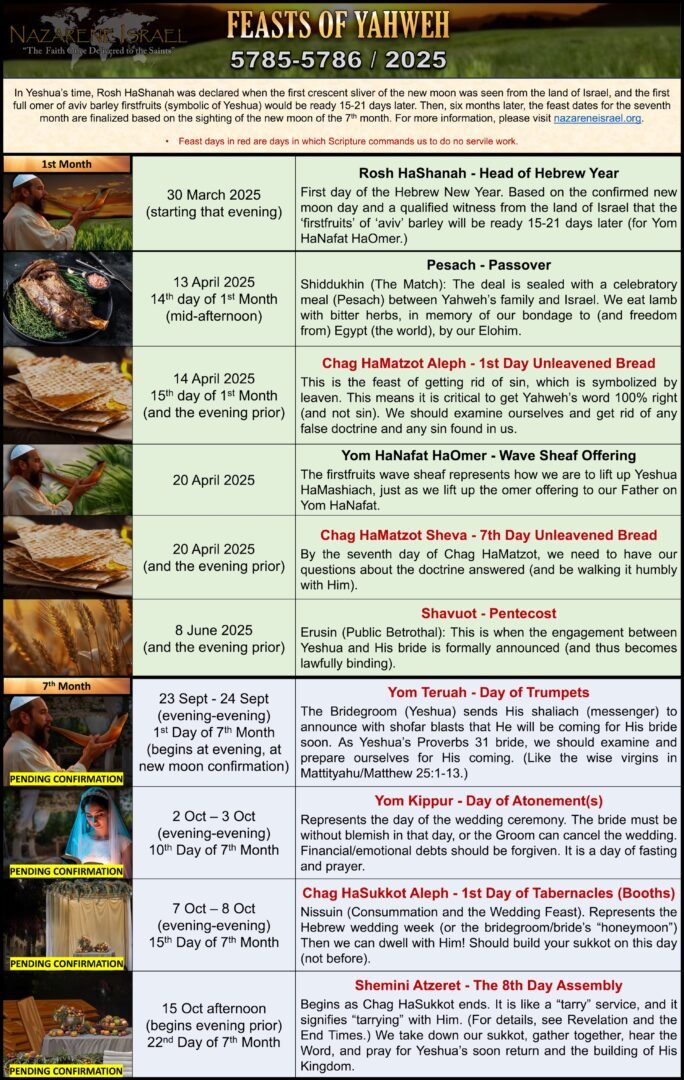Parasha: Noach 5785/2025 (פָּרָשַׁת נֹח) reading:
B’reisheet (Genesis) 6:9-11:32
Tehillim (Psalms) 82, 89
Luqa (Luke) 1
Fair Use: Pro-Israel Content, Academic Content, Autistic Content:
The following are topics of discussion in the video.
Welcome. Parashat Noach 5785 (2025): “Babylon Mystery Religions” is full of important topics. We begin with a brief answer to a calendar question from a viewer about how to qualify a barley witness. Then we recap the fall of B’reisheet (Genesis) chapters 3, and continue to discuss the fall at B’reisheet (Genesis) 6 with the fallen Watchers, and the on-going rebellion post-flood with Nimrod in Babylon.
We will see examples of some well-known men of renown, as well as Kabbalistic ties with the fallen Watchers, and explain about the difference between fallen Watchers, the Nephilim, and the disembodied demons. We will also cover topics about the Table of Nations, the Tower of Babel, Babylonian Mystery Religions; and what these things mean for Yahweh’s people today.

Calendar Questions and Answers:
This week’s parasha begins by answering a viewer question, “What are your standards for barley witnesses?”
Torah portion
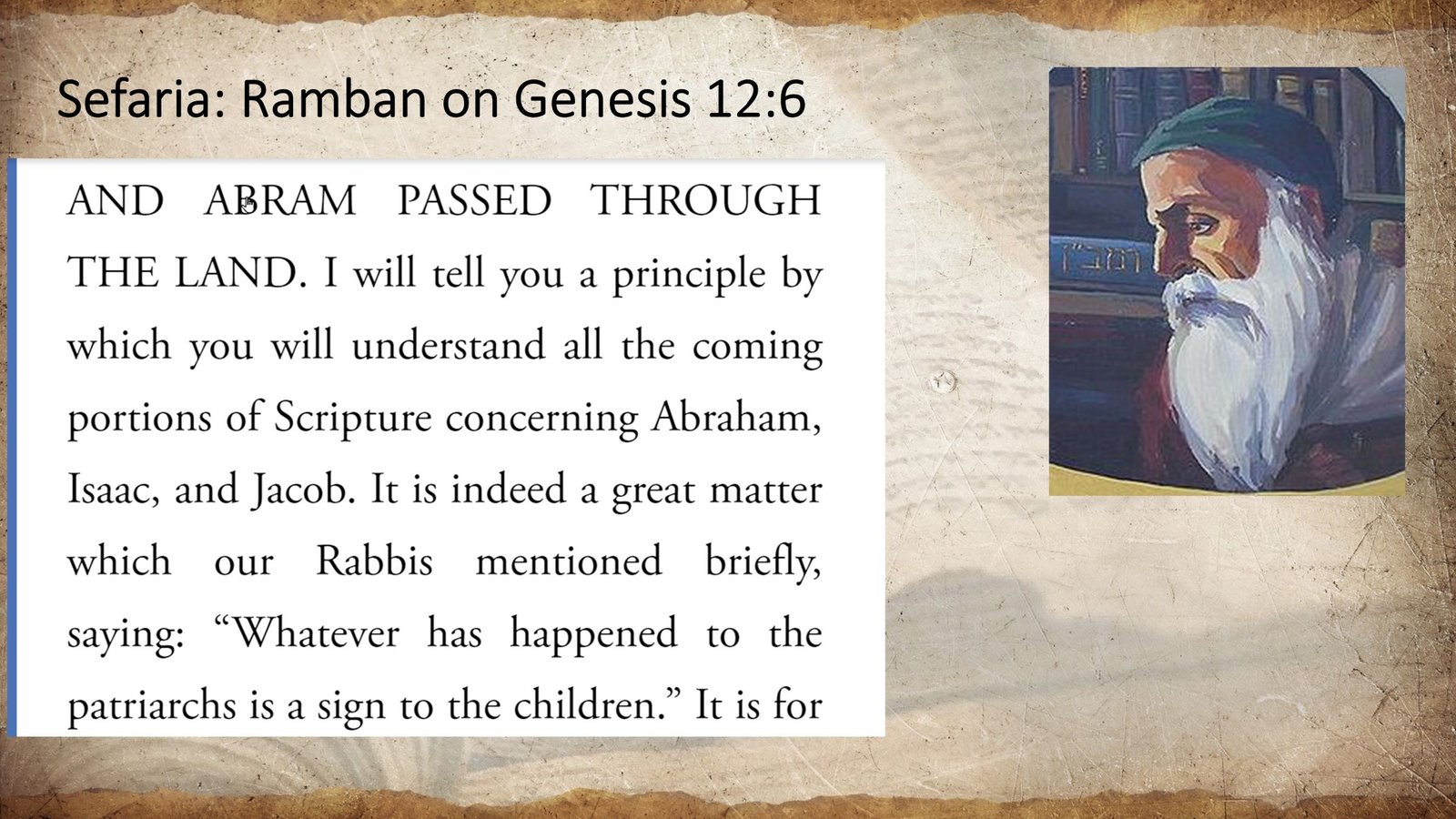
B’reisheet (Genesis) 3:1
1 Now the serpent was more cunning than any beast of the field which Yahweh Elohim had made. And he said to the woman, “Has Elohim indeed said, ‘You shall not eat of every tree of the garden’?“Strong’s Concordance H5175
נָחָשׁnâchâsh naw-khawsh’
From H5172; a snake (from its hiss): – serpent.Strong’s Concordance H5172
נָחַשׁnâchash naw-khash’
A primitive root; properly to hiss, that is, whisper a (magic) spell; generally to prognosticate: – X certainly, divine, enchanter, (use) X enchantment, learn by experience, X indeed, diligently observe.B’reisheet (Genesis) 44:15
15 And Yosef said to them, “What deed is this you have done? Did you not know that such a man as I can certainly practice divination?”B’reisheet (Genesis) 5:18
18 Jared lived one hundred and sixty-two years, and begot Enoch.Strong’s Concordance H3382
יֶרֶדyered yeh’-red
From H3381; a descent; Jered, the name of an antediluvian, and of an Israelite: – Jared.Strong’s Concordance H3381
יָרַד yârad yaw-rad’
A primitive root; to descend (literally to go downwards; or conventionally to a lower region, as the shore, a boundary, the enemy, etc.; or figuratively to fall); causatively to bring down (in all the above applications): – X abundantly, bring down, carry down, cast…Luqa (Luke) 1:35
35 And the messenger answered and said to her, “The Set-apart Spirit will come upon you, and the power of the Most High will overshadow you; therefore, also, that Set-apart One who is to be born will be called the Son of Elohim.”B’reisheet (Genesis) 6:1-2
1 Now it came to pass, when men began to multiply on the face of the earth, and daughters were born to them,
2 that the sons of Elohim saw the daughters of men, that they were beautiful; and they took wives for themselves of all whom they chose.1 Enoch 6:1-3a
1 And it came to pass when the children of men had multiplied that in those days were born unto
2 them beautiful and comely daughters. And the angels, the children of the heaven, saw and lusted after them, and said to one another: ‘Come, let us choose us wives from among the children of men
3 and beget us children…’1 Enoch 6:3b-5a
3b And Semjaza, who was their leader, said unto them: ‘I fear ye will not 4 indeed agree to do this deed, and I alone shall have to pay the penalty of a great sin.’
And they all answered him and said: ‘Let us all swear an oath, and all bind ourselves by mutual imprecations 5 not to abandon this plan, but to do this thing.’1 Enoch 6:5b-7a
5b Then sware they all together and bound themselves 6 by mutual imprecations upon it. And they were in all two hundred; who descended in the days of Jared on the summit of Mount Hermon, and they called it Mount Hermon, because they had sworn 7 and bound themselves by mutual imprecations upon it.Strong’s Concordance H2768
חֶרְמוֹןchermôn kher-mone’
From H2763; abrupt; Chermon, a mount of Palestine: – Hermon.Strong’s Concordance H2768
חָרַםchâram khaw-ram’
A primitive root; to seclude; specifically (by a ban) to devote to religious uses (especially destruction); physically and reflexively to be blunt as to the nose: – make accursed, consecrate, (utterly) destroy, devote, forfeit, have a flat nose, utterly (slay, make away).1 Enoch 6:7b-8
7b And these are the names of their leaders: Samlazaz, their leader, Araklba, Rameel, Kokablel, Tamlel, Ramlel, Danel, Ezeqeel, Baraqijal, 8 Asael, Armaros, Batarel, Ananel, Zaqiel, Samsapeel, Satarel, Turel, Jomjael, Sariel. These are their chiefs of tens.1 Enoch 7:1-2a
1 And all the others together with them took unto themselves wives, and each chose for himself one, and they began to go in unto them and to defile themselves with them, and they taught them charms 2 and enchantments, and the cutting of roots, and made them acquainted with plants…Yehudah (Jude) 1:6
6 And the messengers who did not keep their proper domain, but left their own abode, He has reserved in everlasting chains under darkness for the judgment of the great day;Kepha Bet (2 Peter) 2:4
4 For if Elohim did not spare the messengers who sinned, but cast them down to hell and delivered them into chains of darkness, to be reserved for judgment…Yochanan (John) 1:12-13
12 But as many as received Him, to them He gave the right to become children of Elohim, to those who believe in His name:
13 who were born, not of blood, nor of the will of the flesh, nor of the will of man, but of Elohim.
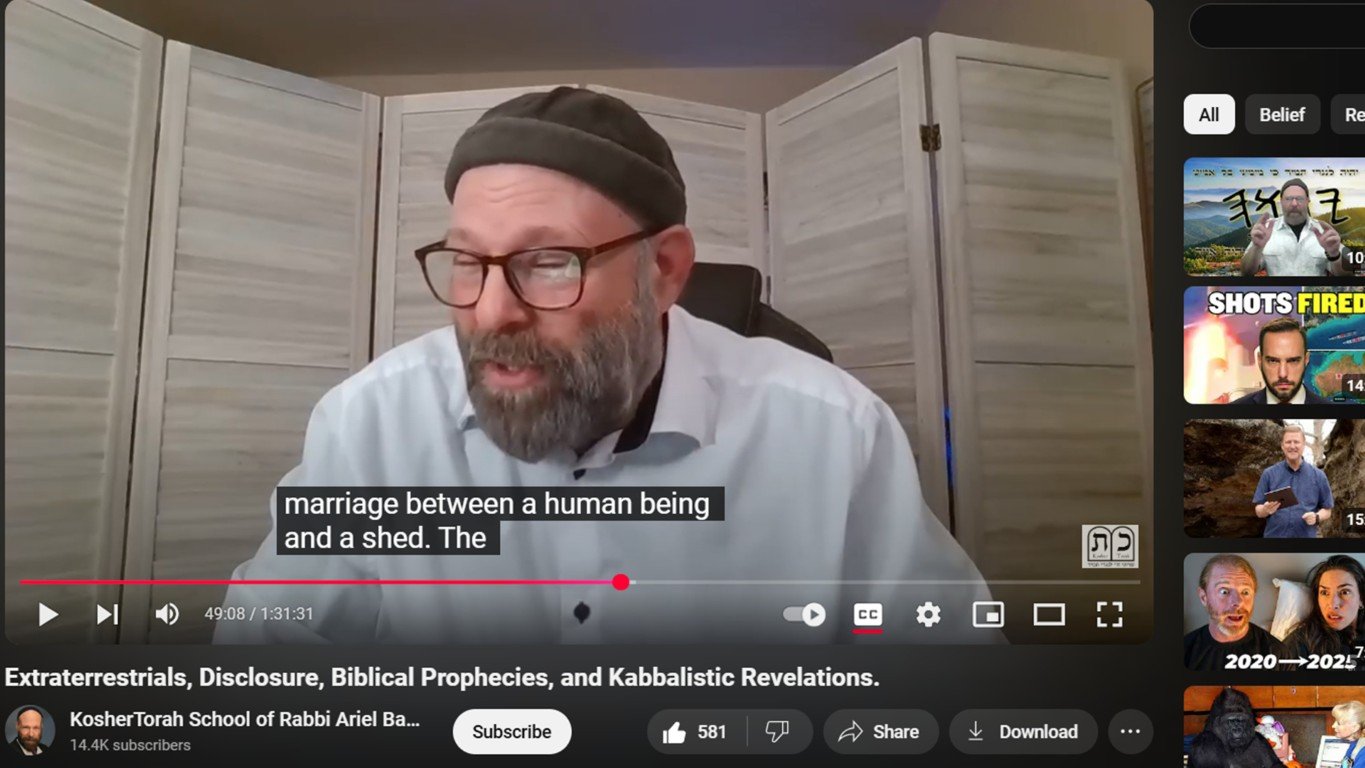
Rav Ariel Bar Tzadok: Extraterrestrials, etc.
48:26 – 49:22
These shadim have been craving to intermarry with humans for a very long time.
Sefaria.org: Kav HaYashar, chapter 69 even speaks of how a Jewish beit din adjudicated the inheritance of a man who had married a “non-human” spirit wife, and had “non-human” heirs.1 Enoch 7:2b-5a
2b And they 3 became pregnant, and they bare great giants, whose height was three thousand ells: Who consumed 4 all the acquisitions of men. And when men could no longer sustain them, the giants turned against 5 them and devoured mankind.1 Enoch 7:5b-6
5b And they began to sin against birds, and beasts, and reptiles, and 6 fish, and to devour one another’s flesh, and drink the blood. Then the earth laid accusation against the lawless ones.1 Enoch 8:1-2a
1 And Azazel taught men to make swords, and knives, and shields, and breastplates, and made known to them the metals of the earth and the art of working them, and bracelets, and ornaments, and the use of antimony, and the beautifying of the eyelids, and all kinds of costly stones, and all 2 colouring tinctures.1 Enoch 8:2b-3a
2b And there arose much godlessness, and they committed fornication, and they 3 were led astray, and became corrupt in all their ways. Semjaza taught enchantments, and root-cuttings, ‘Armaros the resolving of enchantments, Baraqijal (taught) astrology…1 Enoch 8:3ba
3b Kokabel the constellations, Ezeqeel the knowledge of the clouds, Araqiel the signs of the earth, Shamsiel the signs of the sun, and Sariel the course of the moon. And as men perished, they cried, and their cry went up to heaven . . .Rav Ariel Bar Tzadok: Extraterrestrials, etc.
39:03 – 39:42
The Jewish sages have long practiced astral travel, and have communicated with the entities in these other realms. Many cabbalistic rabbis contact these other entities today. “This is kind of normal for us.”Rav Ariel Bar Tzadok: Extraterrestrials, etc.
46:40 – 47:35
The governments of the world seek contact with these shadim (demons) to gain the advanced technology (and hence, advanced weaponry). (The cabbalistic rabbis are the link.)B’reisheet (Genesis) 6:3
3 And Yahweh said, “My Spirit shall not strive with man forever, for he is indeed flesh; yet his days shall be one hundred and twenty years.”B’reisheet (Genesis) 6:4
4 There were giants on the earth in those days, and also afterward, when the sons of Elohim came in to the daughters of men and they bore children to them. Those were the mighty men who were of old, men of renown.Qorintim Aleph (1 Corinthians) 11:10
10 For this reason the woman ought to have a symbol of authority on her head, because of the messengers.B’reisheet (Genesis) 6:4
4 There were giants on the earth in those days, and also afterward, when the sons of Elohim came in to the daughters of men and they bore children to them. Those were the mighty men who were of old, men of renown.
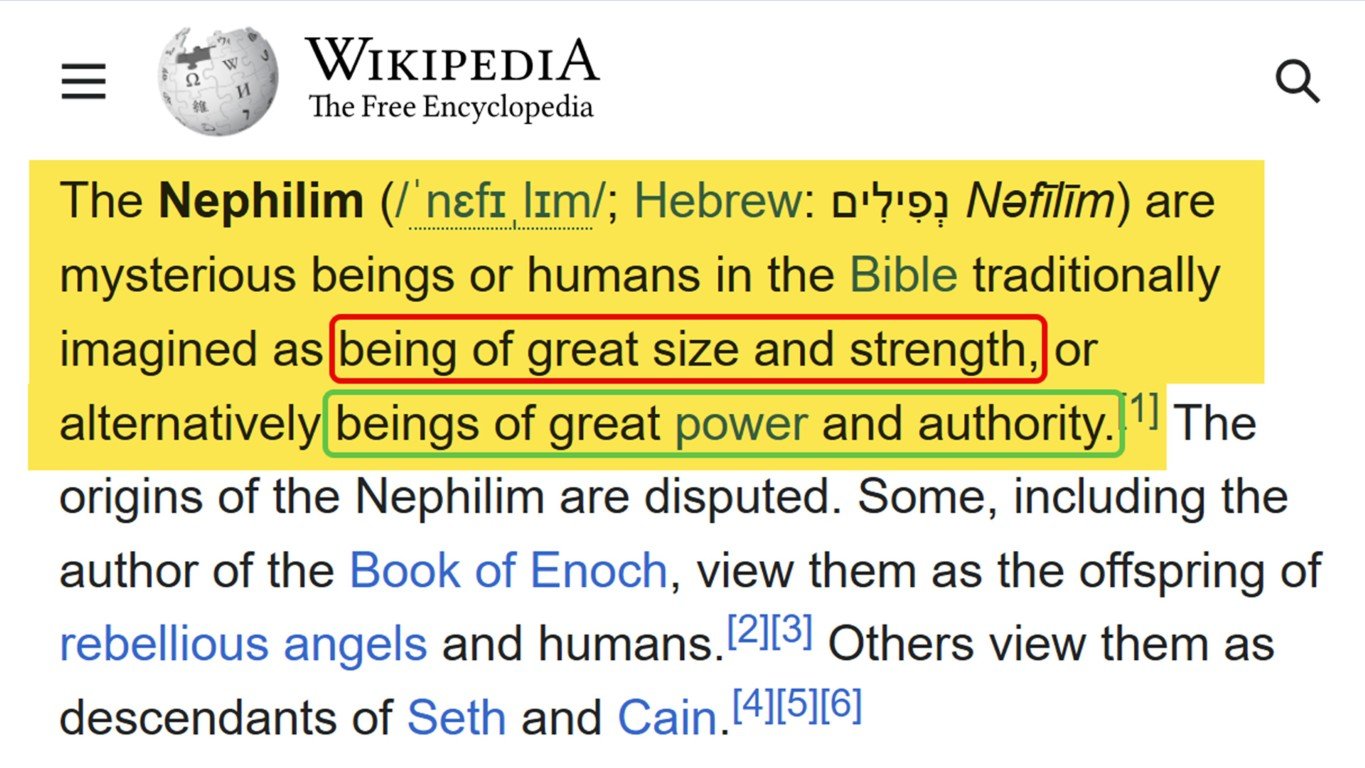
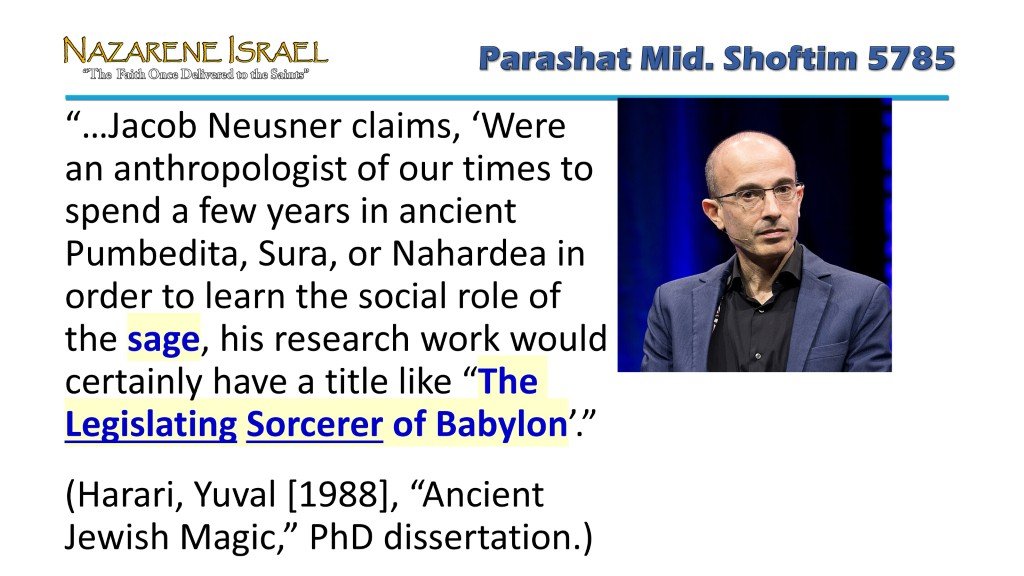



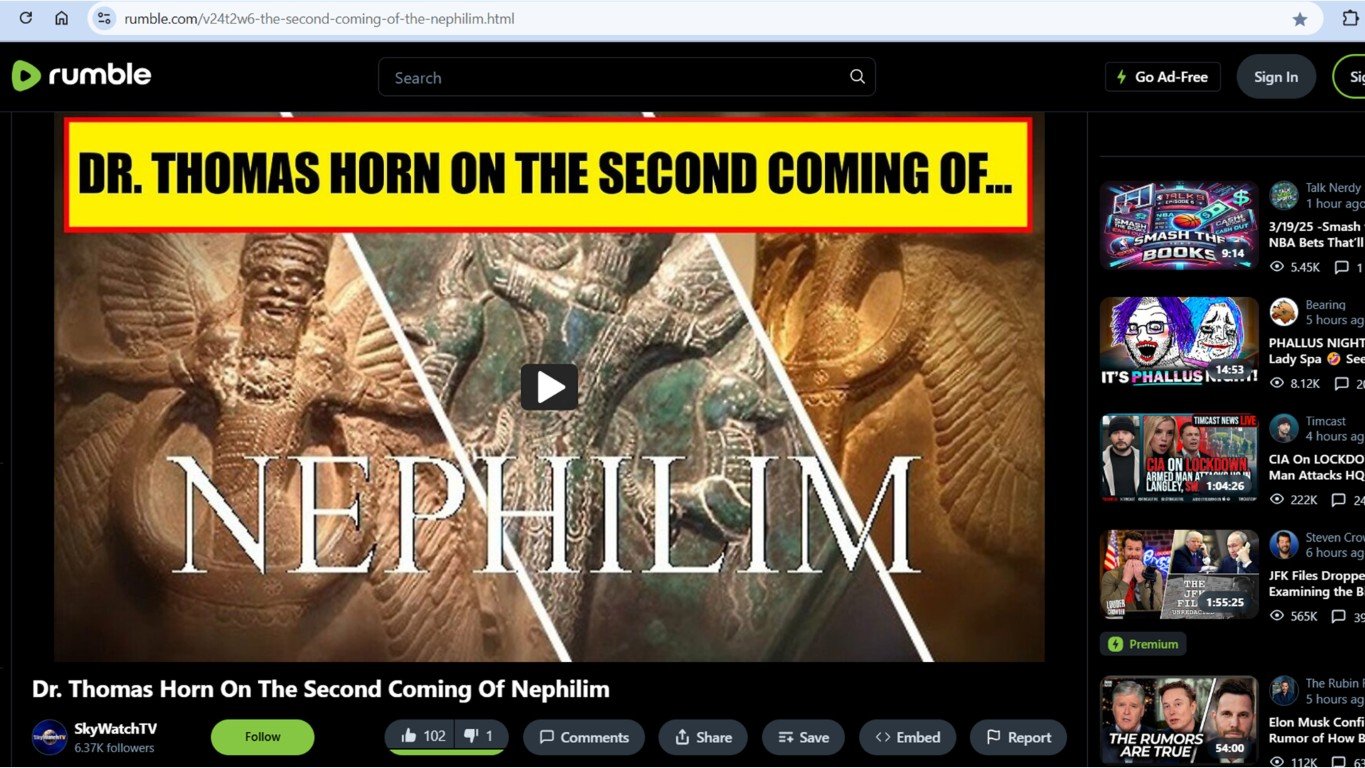


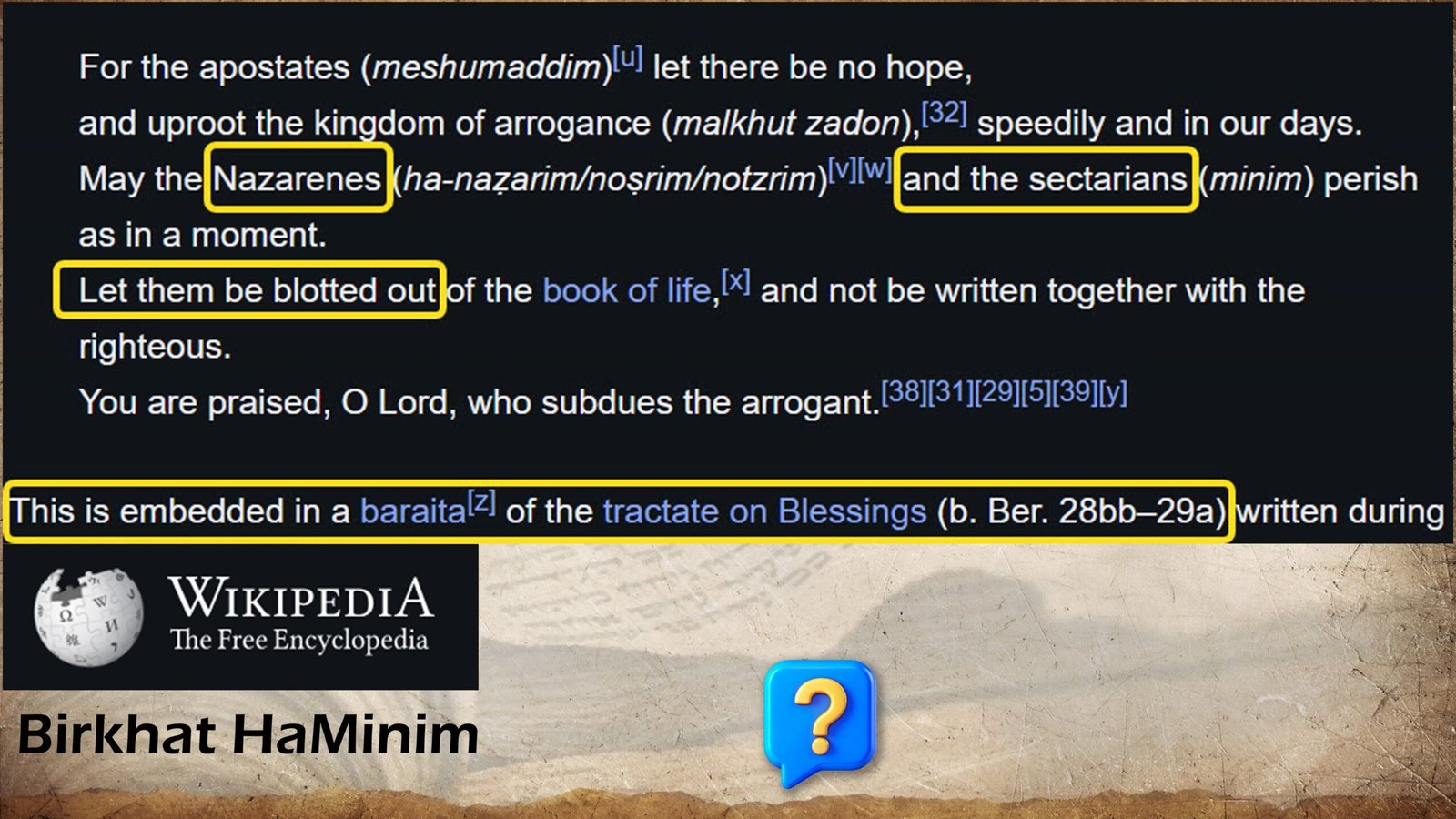
B’reisheet (Genesis) 6:5-6
5 Then Yahweh saw that the wickedness of man was great in the earth, and that every intent of the thoughts of his heart was only evil continually.
6 And Yahweh was sorry that He had made man on the earth, and He was grieved in His heart.B’reisheet (Genesis) 6:7-8
7 So Yahweh said, “I will destroy man whom I have created from the face of the earth, both man and beast, creeping thing and birds of the air, for I am sorry that I have made them.”
8 But Noach found favor in the eyes of Yahweh.B’reisheet (Genesis) 6:9
9 This is the genealogy of Noach. Noach was a just man, perfect in his generations. Noach walked with Elohim.Strong’s Concordance H8549
תָּמִיםtâmı̂ym taw-meem’
From H8552; entire (literally, figuratively or morally); also (as noun) integrity, truth: – without blemish, complete, full, perfect, sincerely (-ity), sound, without spot, undefiled, upright (-ly), whole.B’reisheet (Genesis) 6:10
10 And Noah begot three sons: Shem, Ham, and Japheth.Strong’s Concordance H8035
שֵׁםshêm shame
The same as H8034; name; Shem, a son of Noah (often including his posterity): – Sem, Shem.Strong’s Concordance H8034
שֵׁםshêm shame
A primitive word (perhaps rather from H7760 through the idea of definite and conspicuous position; compare H8064); an appellation, as a mark or memorial of individuality; by implication honor, authority, character: – + base, [in-] fame [-ous], name (-d), renown, report.Strong’s Concordance H2526
חָםchâm khawm
The same as H2525; hot (from the tropical habitat); Cham, a son of Noah; also (as a patronymic) his descendants or their country: – Ham.Strong’s Concordance H3315
יֶפֶתyepheth yeh’-feth
From H6601; expansion; Jepheth, a son of Noah; also his posterity: – Japheth.Strong’s Concordance H6601
פָּתָהpâthâh paw-thaw’
A primitive root; to open, that is, be (causatively make) roomy; usually figuratively (in a mental or moral sense) to be (causatively make) simple or (in a sinister way) delude: – allure, deceive, enlarge, entice, flatter, persuade, silly (one).B’reisheet (Genesis) 6:11-12
11 The earth also was corrupt before Elohim, and the earth was filled with violence.
12 So Elohim looked upon the earth, and indeed it was corrupt; for all flesh had corrupted their way on the earth.
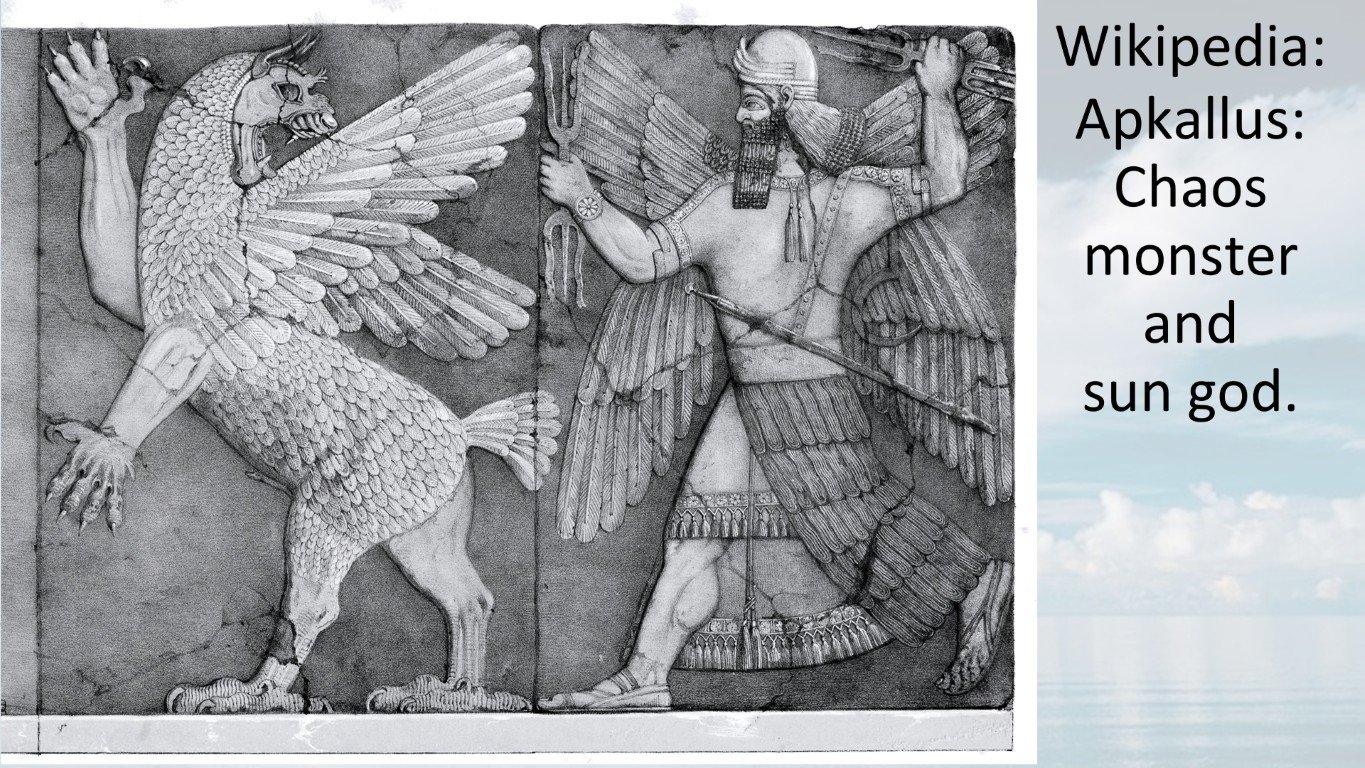
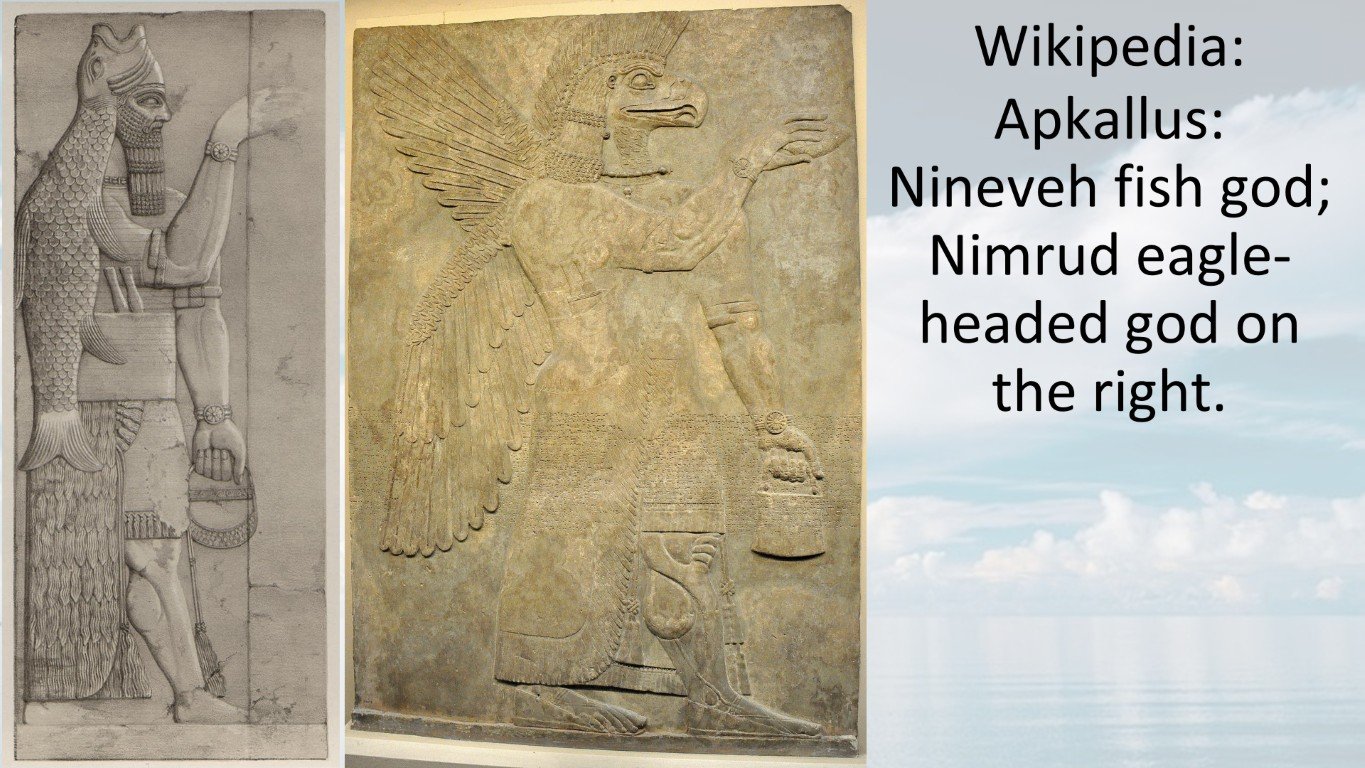

B’reisheet (Genesis) 6:13
13 And Elohim said to Noach, “The end of all flesh has come before Me, for the earth is filled with violence through them; and behold, I will destroy them with the earth.”
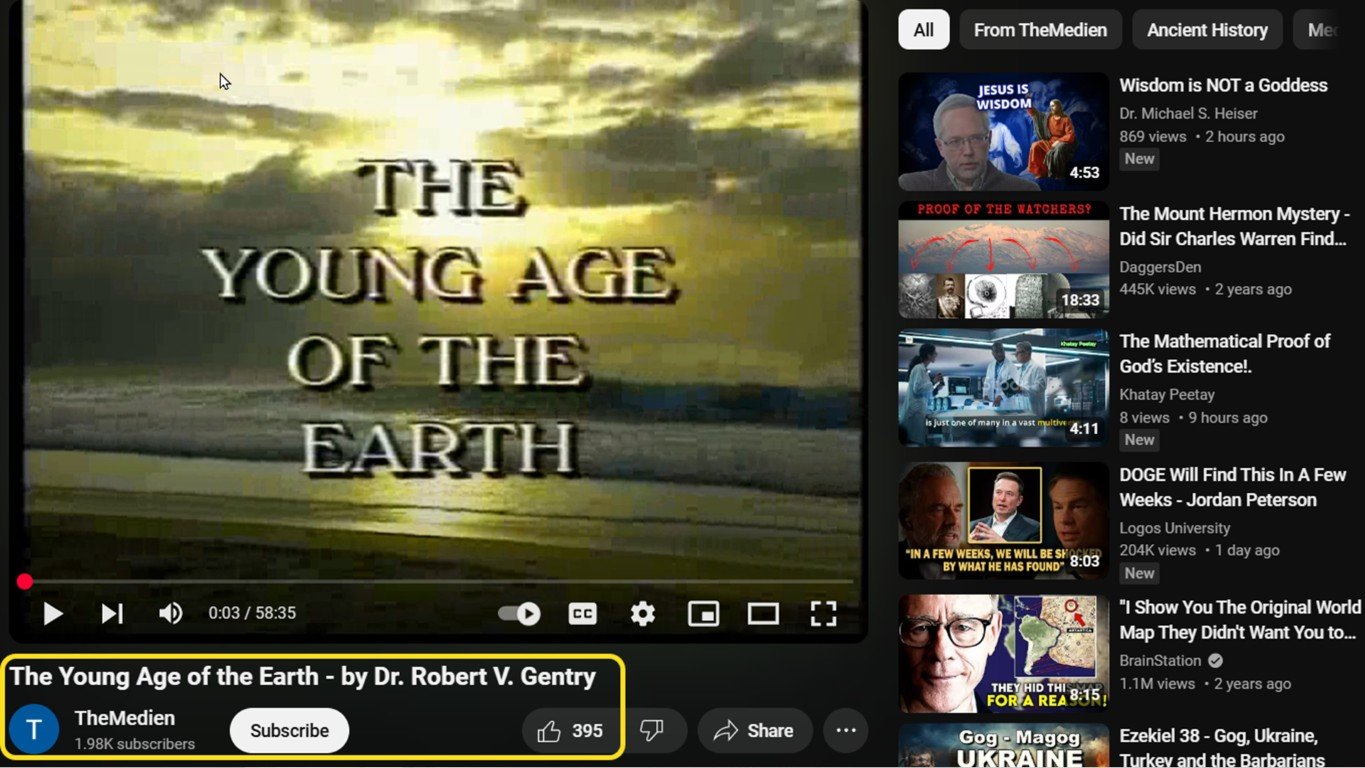

B’reisheet (Genesis) 7:17, 20
17 Now the flood was on the earth forty days. The waters increased and lifted up the ark, and it rose high above the earth.
…
20 The waters prevailed fifteen cubits upward, and the mountains were covered.B’reisheet (Genesis) 7:22-23
22 All in whose nostrils was the breath of the spirit of life, all that was on the dry land, died.
23 So He destroyed all living things which were on the face of the ground: both man and cattle, creeping thing and bird of the air. They were destroyed from the earth. Only Noah and those who were with him in the ark remained alive.B’reisheet (Genesis) 9:18-19
18 Now the sons of Noach who went out of the ark were Shem, Ham, and Japheth. And Ham was the father of Canaan.
19 These three were the sons of Noach, and from these the whole earth was populated.B’reisheet (Genesis) 9:20-22
20 And Noach began to be a farmer, and he planted a vineyard.
21 Then he drank of the wine and was drunk, and became uncovered in his tent.
22 And Ham, the father of Canaan, saw the nakedness of his father, and told his two brothers outside.Vayiqra (Leviticus) 18:8
8 The nakedness of your father’s wife you shall not uncover; it is your father’s nakedness.Vayiqra (Leviticus) 20:11
11 “The man who lies with his father’s wife has uncovered his father’s nakedness; both of them shall surely be put to death. Their blood shall be upon them.”Shemuel Bet (2 Samuel) 16:21-22
21 And Ahithophel said to Absalom, “Go in to your father’s concubines, whom he has left to keep the house; and all Israel will hear that you are abhorred by your father. Then the hands of all who are with you will be strong.”
22 So they pitched a tent for Absalom on the top of the house, and Absalom went in to his father’s concubines in the sight of all Israel.B’reisheet (Genesis) 9:23
23 But Shem and Japheth took a garment, laid it on both their shoulders, and went backward and covered the nakedness of their father. Their faces were turned away, and they did not see their father’s nakedness.Shemote (Exodus) 20:12
12 “Honor your father and your mother, that your days may be long upon the land which Yahweh your Elohim is giving you.”B’reisheet (Genesis) 9:24-25
24 So Noah awoke from his wine, and knew what his younger son had done to him.
25 Then he said: “Cursed be Canaan; A servant of servants He shall be to his brethren.”B’reisheet (Genesis) 9:26-27
26 And he said: “Blessed be Yahweh, The Elohim of Shem, And may Canaan be his servant.
27 “May Elohim enlarge Japheth, And may he dwell in the tents of Shem; And may Canaan be his servant.”
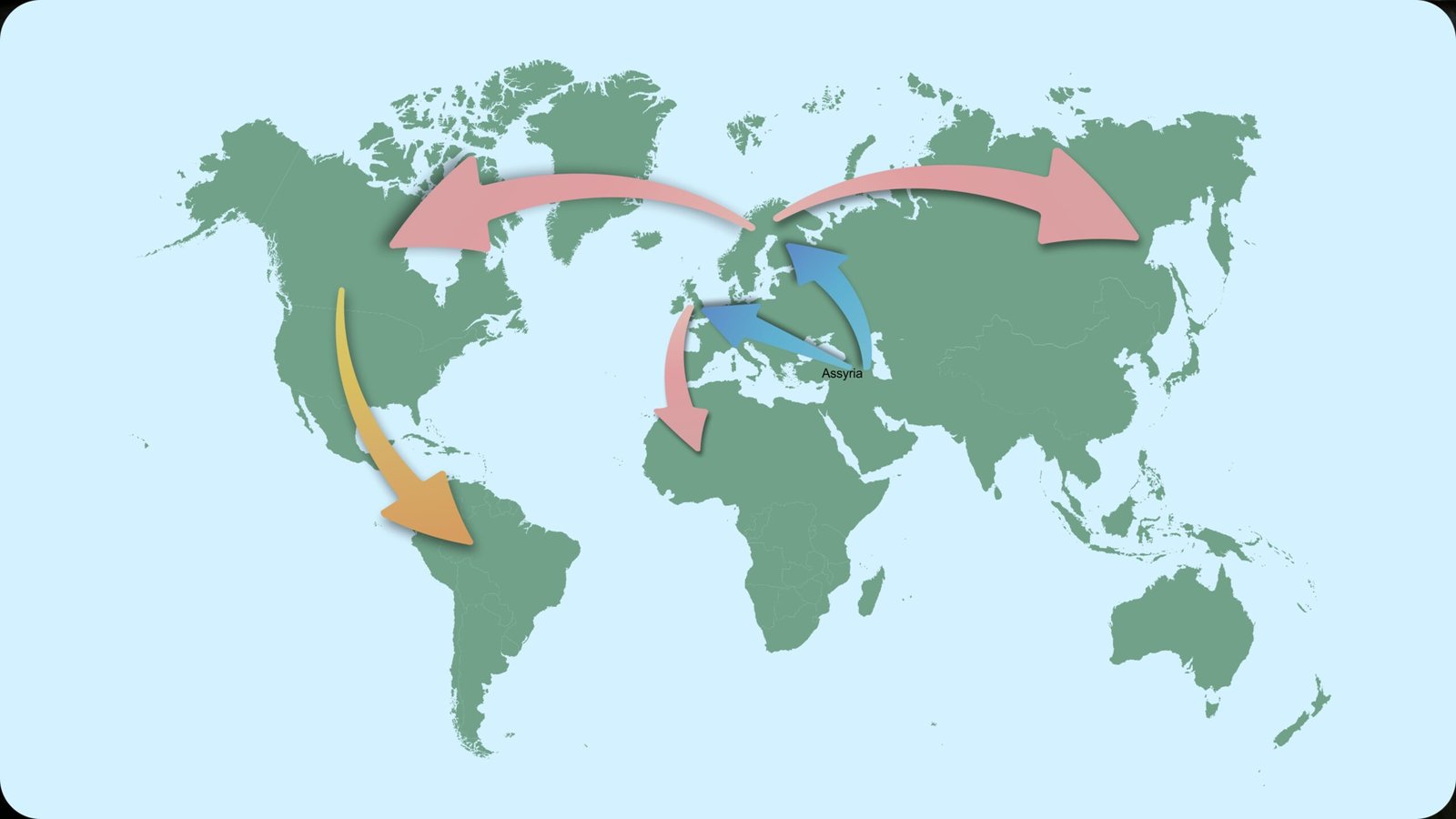

B’reisheet (Genesis) 10:1
1 Now this is the genealogy of the sons of Noah: Shem, Ham, and Japheth. And sons were born to them after the flood.B’reisheet (Genesis) 10:6, 8, 9
6 The sons of Ham were Cush, Mizraim, Put, and Canaan.
8 Cush begot Nimrod; he began to be a mighty one on the earth.
9 He was a mighty hunterbefore Yahweh; therefore it is said, “Like Nimrod the mighty hunter before Yahweh.”Strong’s Concordance H5248
נִמְרֹד נִמְרוֹד nimrôd nim-rode’
Probably of foreign origin; Nimrod, a son of Cush: – Nimrod.Brown Driver Briggs H5248
נמרד / נמרוד nimrôd
Nimrod = “rebellion” or “the valiant”
1) the son of Cush, grandson of Ham, and great grandson of Noah; a mighty hunter, he established an empire in the area of Babylon and Assyria…Google Translate: מֶרֶד
Revolt: מֶרֶד ,מְרִידָה
Rebellion: ,מֶרֶד,הִתמַרְדוּת
Uprising: מֶרֶד
Mutiny: ,מֶרֶד,, מְרִידָה
Insurrection: מֶרֶד, מְרִי
(Murder, marauder)B’reisheet (Genesis) 10:8, 9
8 Cush begot Nimrod; he began to be a mighty one on the earth.
9 He was a mighty hunter before Yahweh; therefore it is said, “Like Nimrod the mighty hunter before Yahweh.”(Self-exaltation rather than service to extended family.)
(Polytheistic / pantheon.)B’reisheet (Genesis) 25:27
27 So the boys grew. And Esau was a skillful hunter, a man of the field; but Jacob was a mild man, dwelling in tents.(Self-exaltation of Esav in Rome.)
(Polytheistic / pantheon.)B’reisheet (Genesis) 10:10-11
10 And the beginning of his kingdom was Babel, Erech [Uruk], Accad, and Calneh, in the land of Shinar.
11 From that land he went to Assyria and built Nineveh, Rehoboth Ir, Calah…Micah 5:6
6 They shall waste with the sword the land of Assyria, And the land of Nimrod at its entrances; Thus He shall deliver us from the Assyrian, When he comes into our land And when he treads within our borders.
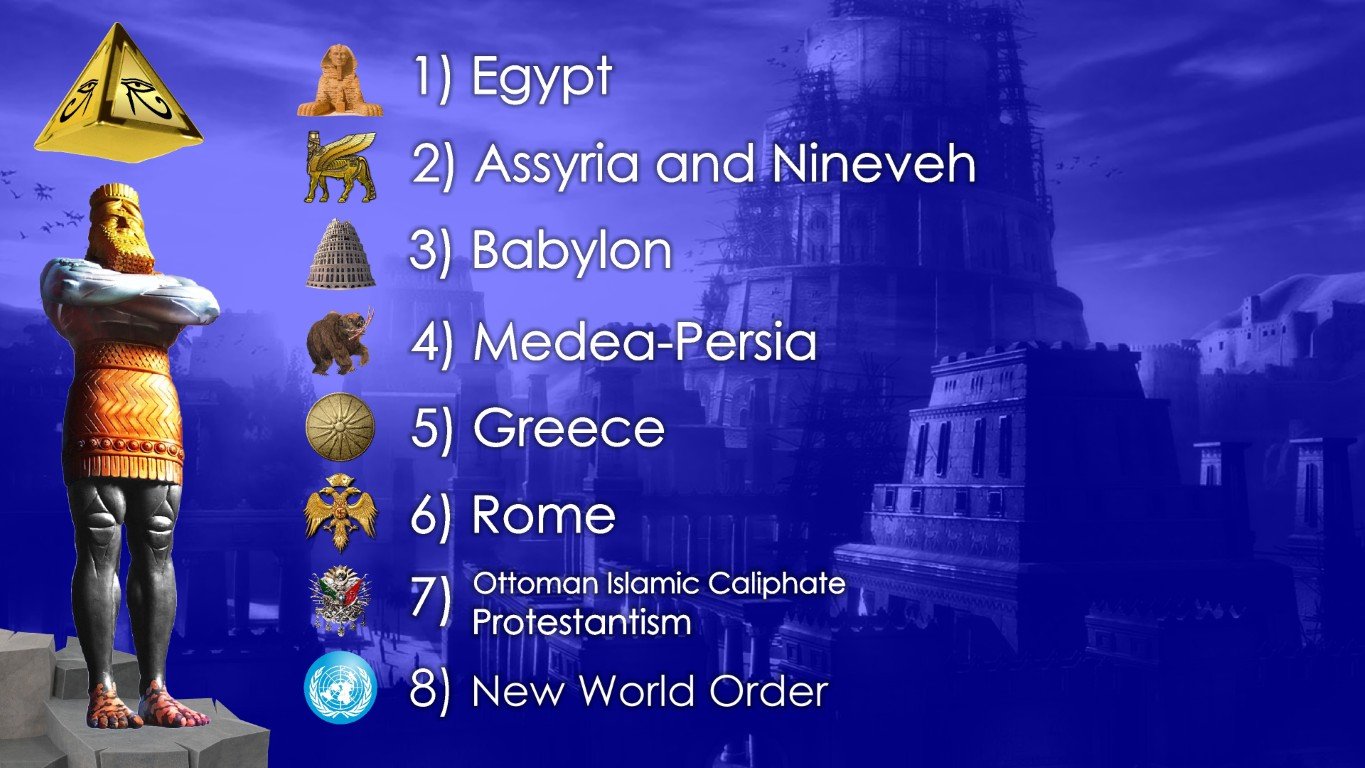
B’reisheet (Genesis) 11:1-2
1 Now the whole earth had one language and one speech.
2 And it came to pass, as they journeyed from the east, that they found a plain in the land of Shinar, and they dwelt there.B’reisheet (Genesis) 11:3-4
3 Then they said to one another, “Come, let us make bricks and bake them thoroughly.” They had brick for stone, and they had asphalt for mortar.
4 And they said, “Come, let us build ourselves a city, and a tower whose top is in the heavens; let us make a name for ourselves, lest we be scattered abroad over the face of the whole earth.”Shemuel Bet (2 Samuel) 7:9
9 “And I have been with you wherever you have gone, and have cut off all your enemies from before you, and have made you a great name, like the name of the great men who are on the earth.”B’reisheet (Genesis) 11:5-6
5 But Yahweh came down to see the city and the tower which the sons of men had built.
6 And Yahweh said, “Indeed the people are one and they all have one language, and this is what they begin to do; now nothing that they propose to do will be withheld from them.B’reisheet (Genesis) 11:7
7 “Come, let Us go down and there confuse their language, that they may not understand one another’s speech.”B’reisheet (Genesis) 11:8-9
8 So Yahweh scattered them abroad from there over the face of all the earth, and they ceased building the city.
9 Therefore its name is called Bavel, because there Yahweh confused the language of all the earth; and from there Yahweh scattered them abroad over the face of all the earth.Josephus: Antiquities: Book 1, Chapter 4
2. Now it was Nimrod who excited them to such an affront and contempt of God. He was the grand-son of Ham, the son of Noah: a bold man, and of great strength of hand. He persuaded them not to ascribe it to God, as if it was through his means that they were happy; but to believe that it was their own courage which procured that happiness.Josephus: Antiquities: Book 1, Chapter 4
2. He also gradually changed the government into tyranny; seeing no other way of turning men from the fear of God, but to bring them into a constant dependence on his own power.Josephus: Antiquities: Book 1, Chapter 4
2. He also said, “He would be revenged on God, if he should have a mind to drown the world again: for that he would build a Tower too high for the waters to be able to reach; and that he would avenge himself on God for destroying their fore-fathers.Josephus: Antiquities: Book 1, Chapter 4
3. [About An. 2520] Now the multitude were very ready to follow the determination of Nimrod, and to esteem it a piece of cowardice to submit to God: and they built a Tower; neither sparing any pains, nor being in any degree negligent about the work.Josephus: Antiquities: Book 1, Chapter 4
3. When God saw that they acted so madly, he did not resolve to destroy them utterly; since they were not grown wiser by the destruction of the former sinners: but he caused a tumult among them, by producing in them diverse languages…Josephus: Antiquities: Book 1, Chapter 4
3. The Sibyll also makes mention of this tower, (21) and of the confusion of the language when she says thus: “When all men were of one language, some of them built an high tower, as if they would thereby ascend up to heaven. But the Gods sent storms of wind, and overthrew the tower, and gave every one his peculiar language. And for this reason it was that the city was called Babylon.”
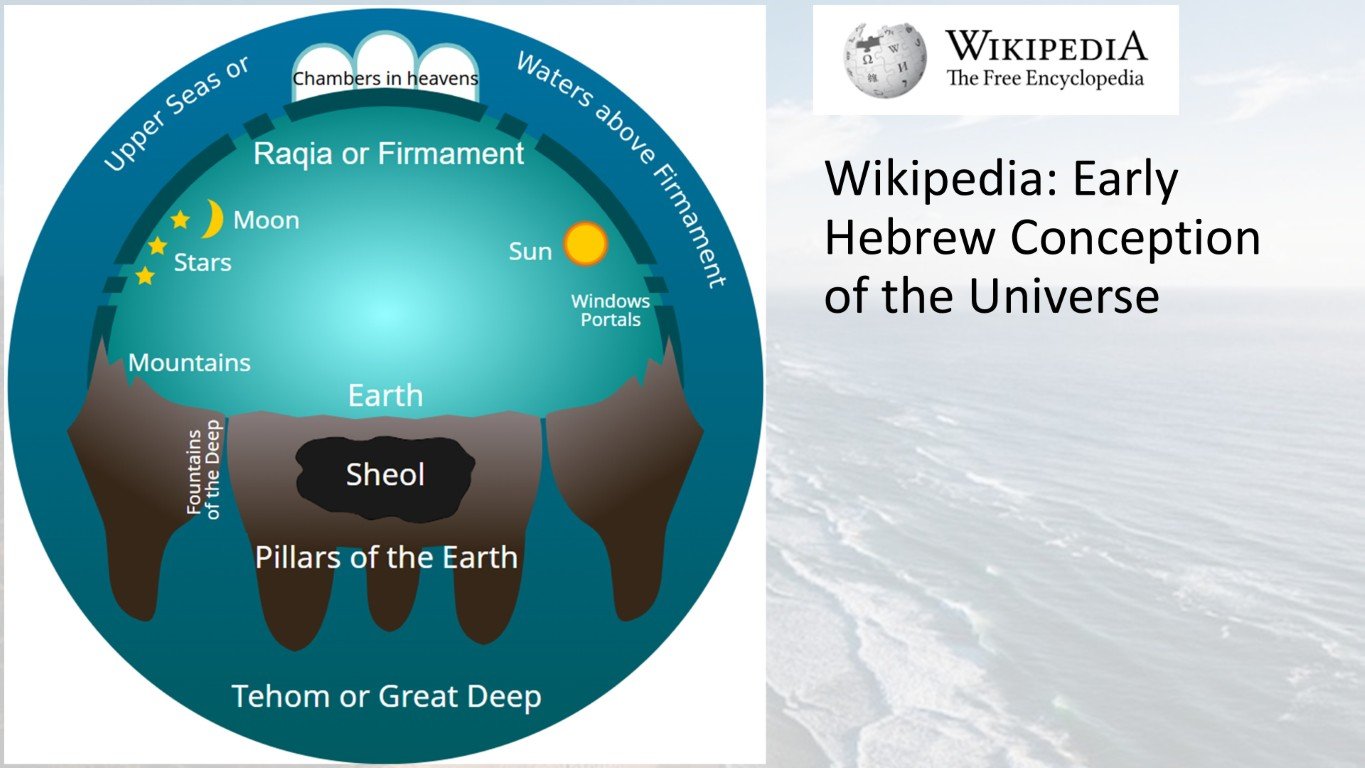
Tehillim (Psalms) 82:1-2 LEB corrected
1 A psalm of Asaph. Elohim stands in the divine assembly; he administers judgment in the midst of the elohim.
2 “How long will you judge unjustly and show favoritism to the wicked? Selah.Tehillim (Psalms) 82:3-5 LEB corrected
3 “Judge on behalf of the helpless and the orphan; provide justice to the afflicted and the poor.
4 “Rescue the helpless and the needy; deliver them from the hand of the wicked.”
5 “They do not know or consider. They go about in the darkness, so that all the foundations of the earth are shaken.Tehillim (Psalms) 82:6-8 LEB corrected
6 I said, “You are elohim, And all of you are children of the Most High.
7 But you shall die like men, And fall like one of the princes.”
8 Arise, O Elohim, judge the earth; For You shall inherit all nations.
Situation and Parallels:
- The fallen watcher of Genesis 3 must manifest on his belly.
- Enoch 1 tells us that the 200 Fallen watchers of Genesis 6 were chained under the earth (2 Peter, Jude).
- More watchers fell later (“…and also afterward…”), and they made the giant clans in the land (which Israel was called to destroy).
- The Nephilim giants of Genesis 6 all drowned in the flood.
- However, since they are unlawful hybrids, they have no estate in this world. Therefore their souls became disembodied demons at death.
(Dead Nephilim = demon seeking a host.)
- Demons want to be re-embodied, so they are always looking to find a willing host.
- Consider that Ham dishonored his father and mother. Three generations after the Flood, Ham’s son Cush fathered Nimrod. Could Nimrod have been a willing human host (i.e., demon possessed)?
- (Is that perhaps why Nimrod opposed Elohim?)
- Psalm 82 and Psalm 89 inform us that the nations were assigned to the sons of Elohim (who participate in the Divine Council).
- Yahweh is not happy with their job, and He says He will judge them, and the bad ones will be replaced by us!
Devarim (Deuteronomy) 21:18-19
18 “If a man has a stubborn and rebellious son who will not obey the voice of his father or the voice of his mother, and who, when they have chastened him, will not heed them,
19 “then his father and his mother shall take hold of him and bring him out to the elders of his city, to the gate of his city.Devarim (Deuteronomy) 21:20-21
20 “And they shall say to the elders of his city,
‘This son of ours is stubborn and rebellious; he will not obey our voice; he is a glutton and a drunkard.’
21 “Then all the men of his city shall stone him to death with stones; so you shall put away the evil from among you, and all Israel shall hear and fear.”Qorintim Aleph (1 Corinthians) 6:2-3
2 Do you not know that the set-apart ones will judge the world? And if the world will be judged by you, are you unworthy to judge the smallest matters?
3 Do you not know that we shall judge messengers? How much more, things that pertain to this life?
History: Fertile Crescent & Mesopotamia
- Fall. Genesis 3 watcher sentenced to crawl on his belly.
- Genesis 6 watchers confined in chains under the earth (1 Enoch, 2 Peter, Jude).
- Flood. Noach’s Ark lands near Durupinar, Turkey, north of Mesopotamia proper.
- Noach finds a new home.

- Noach and his family settled into a new home, where Noach planted a vineyard, got drunk, and uncovered himself (possibly Mesopotamia).
- Ham likely disrespected his father Noach where they settled (possibly Mesopotamia).
- Nimrod was born of Ham’s son Cush.
- Cush may be Mesopotamian Kish.
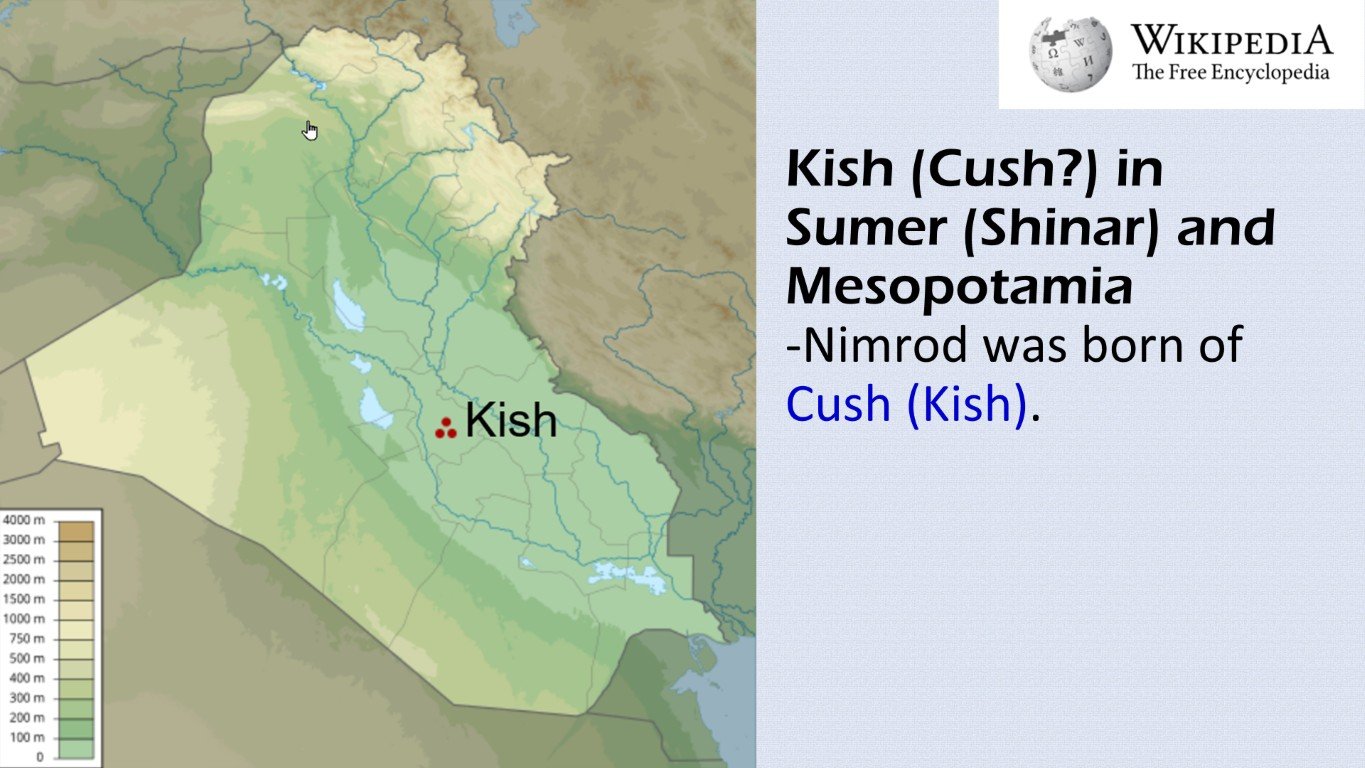
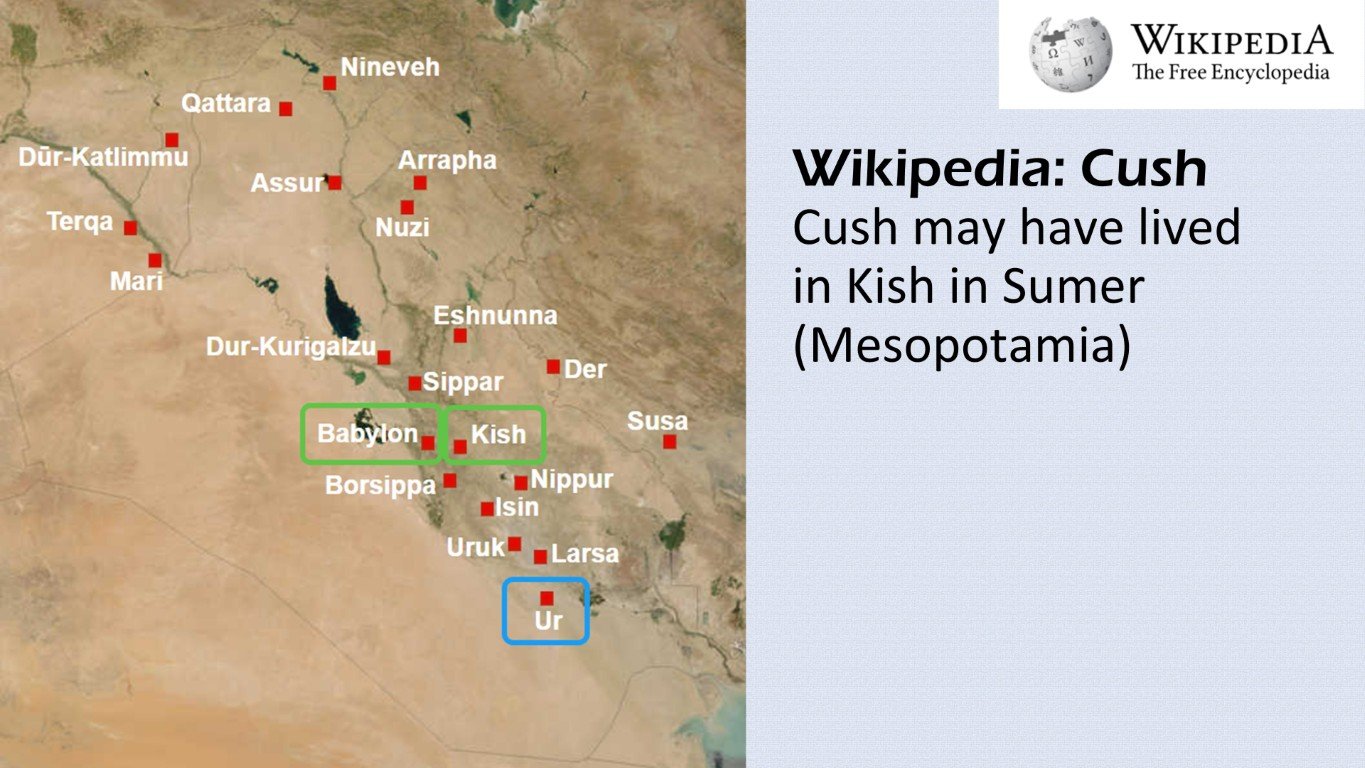
B’reisheet (Genesis) 10:5
5 From these the coastland peoples of the Gentiles were separated into their lands, everyone according to his language, according to their families, into their nations.
(70 creation myths.)
(70 pantheons.)
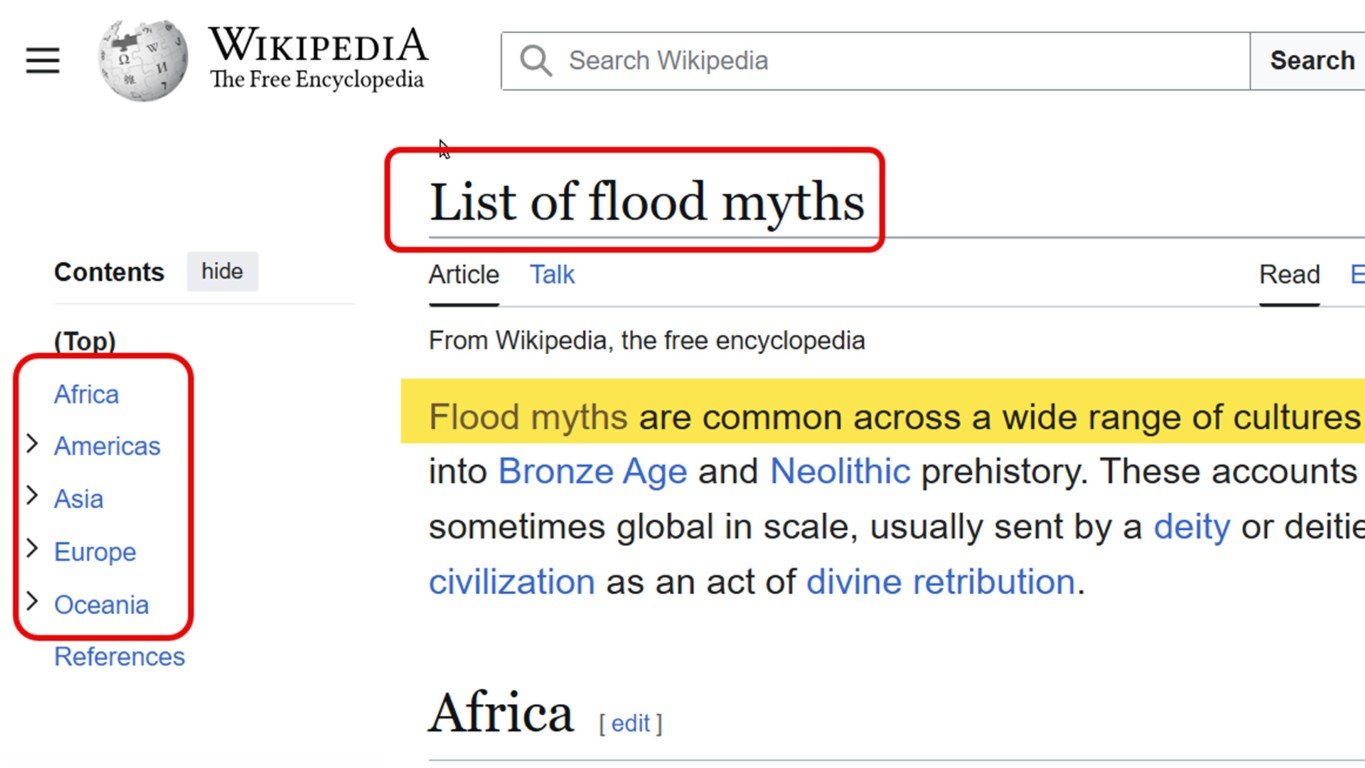
Tehillim (Psalms) 82:1-2 LEB corrected
1 A psalm of Asaph. Elohim stands in the divine assembly; he administers judgment in the midst of the elohim.
2 “How long will you judge unjustly and show favoritism to the wicked? Selah.B’reisheet (Genesis) 10:9-10
9 He was a mighty hunter before Yahweh; therefore it is said, “Like Nimrod the mighty hunter before Yahweh.”
10 And the beginning of his kingdom was Babel,Erech (Uruk), Accad, and Calneh, in the land of Shinar.B’reisheet (Genesis) 10:11
11 From that land he went to Assyria and built Nineveh, Rehoboth Ir, Calah,
12 and Resen between Nineveh and Calah (that is the principal city).


Shinar / Sumer / Mesopotamia + Apkallus
- Mesopotamia: just south of where the Ark landed, and probably where Ham dishonored his father.
- Mesopotamia: where Nimrod started his empire in rebellion against Yahweh.
- Mesopotamia: where the Tower of Babylon was built.
- Mesopotamia: where Gilgamesh was allegedly born.
- What happened after Yahweh confused the languages and all the nations dispersed all over the world?
- Since the nations are assigned to one of Yahweh’s sons, what creation myths did they make for themselves?
How did they explain the Flood if they are not loyal to Yahweh, and there are demons on the earth?- What role do the Watchers play?
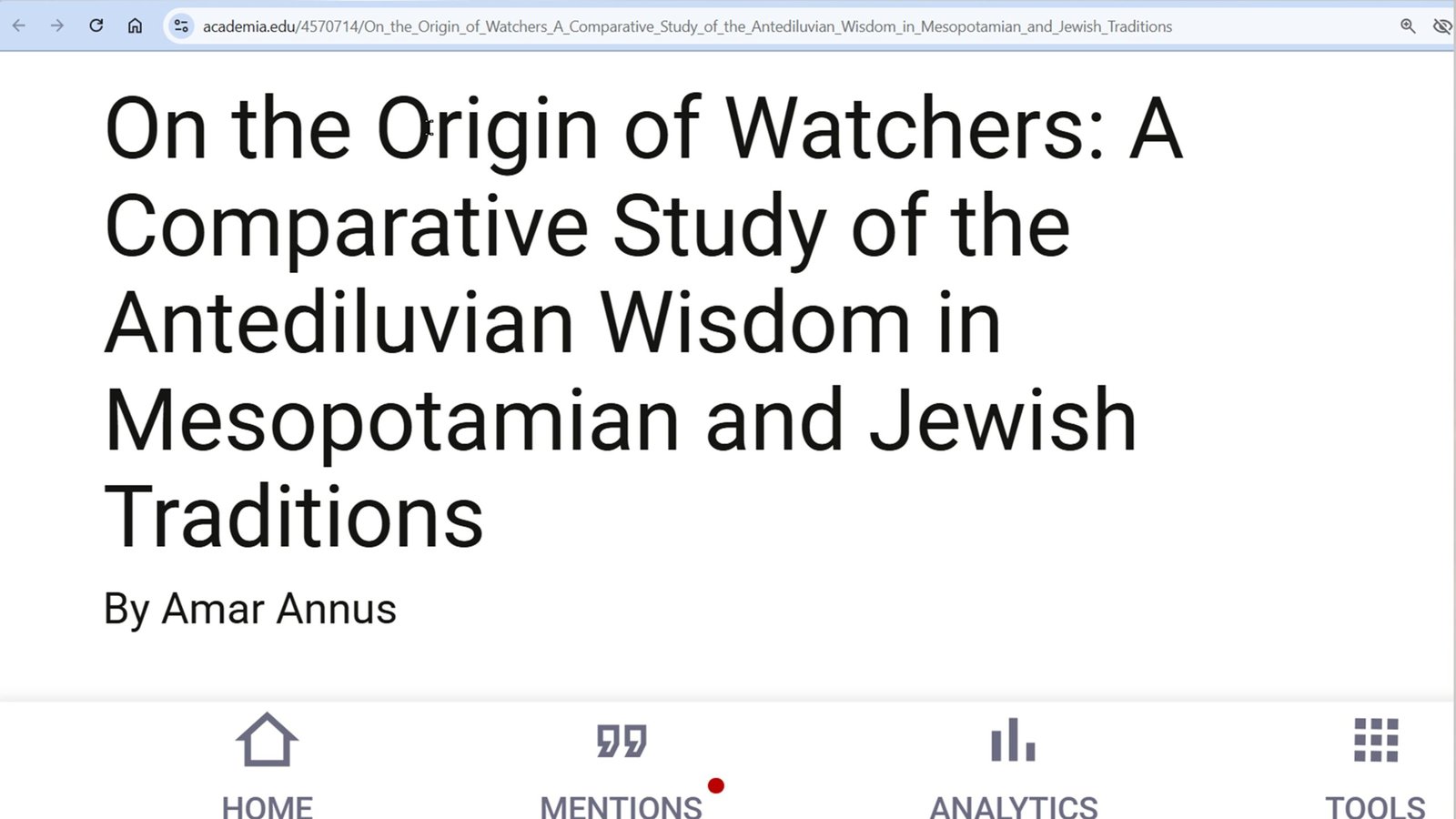
Amar Annus: On the Origin of Watchers
In the article, it is argued that the origin of Watchers derives from the Mesopotamian mythology of the antediluvian sages (apkallus). More precisely, it is proposed that the mythology of Watchers and their sons the giants derived from inverted versions of various Mesopotamian myths and beliefs about apkallus.

1 Enoch 7:5b-6
5b And they began to sin against birds, and beasts, and reptiles, and 6 fish, and to devour one another’s flesh, and drink the blood. Then the earth laid accusation against the lawless ones.

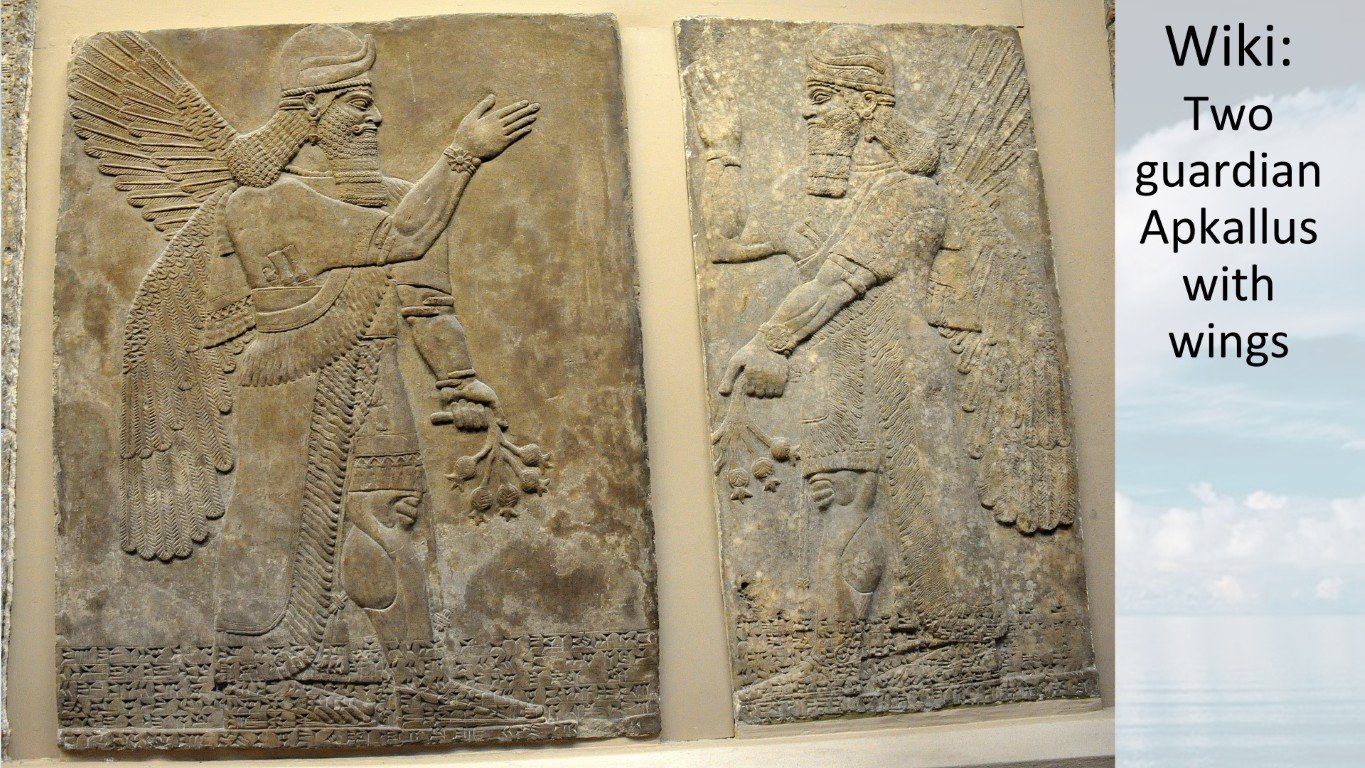
Amar Annus: On the Origin of Watchers
On some layers of Mesopotamian mythology and ritual practices, the sages (apkallus) were already regarded as dangerous and potentially malicious creatures, upon which the Jewish authors could build their parody. Among other associations, the apkallus had strong ties to Mesopotamian demonology, and they were occasionally counted as evil beings, capable of witchcraft.Amar Annus: On the Origin of Watchers
This shows that the wickedness of antediluvian teachers of humankind in Jewish sources was not wholly an inversion of the Mesopotamian traditions by Jewish scholars, but was partly taken from already existing trends in Mesopotamian demonology.Wikipedia: Enuma Elish (Babylonian Creation)
Enūma Eliš (Akkadian Cuneiform: 𒂊𒉡𒈠𒂊𒇺, also spelled “Enuma Elish”), meaning “When on High”, is a Babylonian creation myth (named after its opening words) from the late 2nd millennium BCE and the only complete surviving account of ancient near eastern cosmology.Wikipedia: Enuma Elish (Babylonian Creation)
Enūma Eliš contains numerous parallels with passages of the Old Testament, which has led some researchers to conclude that these were based on the Mesopotamian work.Wikipedia: Enuma Elish (Babylonian Creation)
Overarching similarities include: reference to a watery chaos before creation; a separation of the chaos into heaven and earth; different types of waters and their separation; and the numerical similarity between the seven tablets of the epic and the seven days of creation.Wikipedia: Enuma Elish (Babylonian Creation)
However, another analysis (Heidel 1951) notes many differences, including polytheism vs. monotheism, and personification of forces and qualities in the Babylonian myth vs. imperative creation by God in the biblical stories;Wikipedia: List of Mesopotamian Deities
Deities in ancient Mesopotamia were almost exclusively anthropomorphic. [2] They were thought to possess extraordinary powers [2] and were often envisioned as being of tremendous physical size. [2]
Sumerian / Mesopotamian Apkallus Myth:
- Before the flood, the higher-level gods were not teaching the people advanced arts and sciences.
- Some lower-level gods decided to help men by teaching them the arts and sciences of civilization (tools, agriculture, medicine, weaponry, astrology, etc.).
- Some higher-level gods decided they did not like the people being taught arts and sciences, so they wanted to destroy mankind with a great flood.
The lower-level gods thought to help the humans by mating with some of the women, to make super intelligent hybrid children.- In the Mesopotamian story, the “lesser gods” who mated with human females to make hybrid children are “the good guys.”
The “higher-level gods” (who allegedly do not like humans) send the lower-level gods into the abyss forever.Rav Ariel Bar Tzadok: Extraterrestrials, etc.
52:00 – 54:09
The rabbis communicate telepathically with these non-human reptilian entities. They are called the Teli, and the (fallen) Watchers.
Rav Tzadok claims these (fallen) Watchers “presently serve HaShem”, and that they are “the good guys”.Devarim (Deuteronomy) 32:12
12 So Yahweh alone led him, And there was no foreign god with him.Kepha Bet (2 Peter) 2:4
4 For if Elohim did not spare the messengers who sinned, but cast them down to hell and delivered them into chains of darkness, to be reserved for judgment…Strong’s Concordance G5020
Ταρταρόωtartaroō tar-tar-o’-o
From Τάρταρος Tartaros̄ (the deepest abyss of Hades); to incarcerate in eternal torment: – cast down to hell.Wikipedia: Tartarus
In Greek mythology, Tartarus (/ˈtɑːrtərəs/; Ancient Greek: Τάρταρος, romanized: Tártaros)[1] is the deep abyss that is used as a dungeon of torment and suffering for the wicked and as the prison for the Titans. Tartarus is the place where, according to Plato’s Gorgias (c. 400 BC), souls are judged after death and where the wicked received divine punishment.Wikipedia: Titans
The Titans were the former gods: the generation of gods preceding the Olympians. They were overthrown as part of the Greek succession myth, which tells how Cronus … ruled the cosmos with his fellow Titans before being in turn defeated and replaced as the ruling pantheon of gods by Zeus and the Olympians…Wikipedia: Titans
As a result of this war, the vanquished Titans were banished from the upper world and held imprisoned under guard in Tartarus. Some Titans were apparently allowed to remain free.Luqa (Luke) 8:30-31
30 Yeshua asked him, saying, “What is your name?” And he said, “Legion,” because many demons had entered him.
31 And they begged Him that He would not command them to go out into the abyss.Wikipedia: Enuma Elish
Enūma Eliš (Akkadian Cuneiform: 𒂊𒉡𒈠𒂊𒇺, also spelled “Enuma Elish”), meaning “When on High”, is a Babylonian creation myth (named after its opening words)…Wikipedia: Gilgamesh
In the epic, Gilgamesh is a demigod of superhuman strength who befriends the wild man Enkidu.Wikipedia: Gilgamesh
Tales of Gilgamesh’s legendary exploits… the earliest of these is likely “Gilgamesh, Enkidu, and the Netherworld”,[12] in which Gilgamesh comes to the aid of the goddess Inanna… After Enkidu’s death, his shade tells Gilgamesh about the bleak conditions in the Underworld.
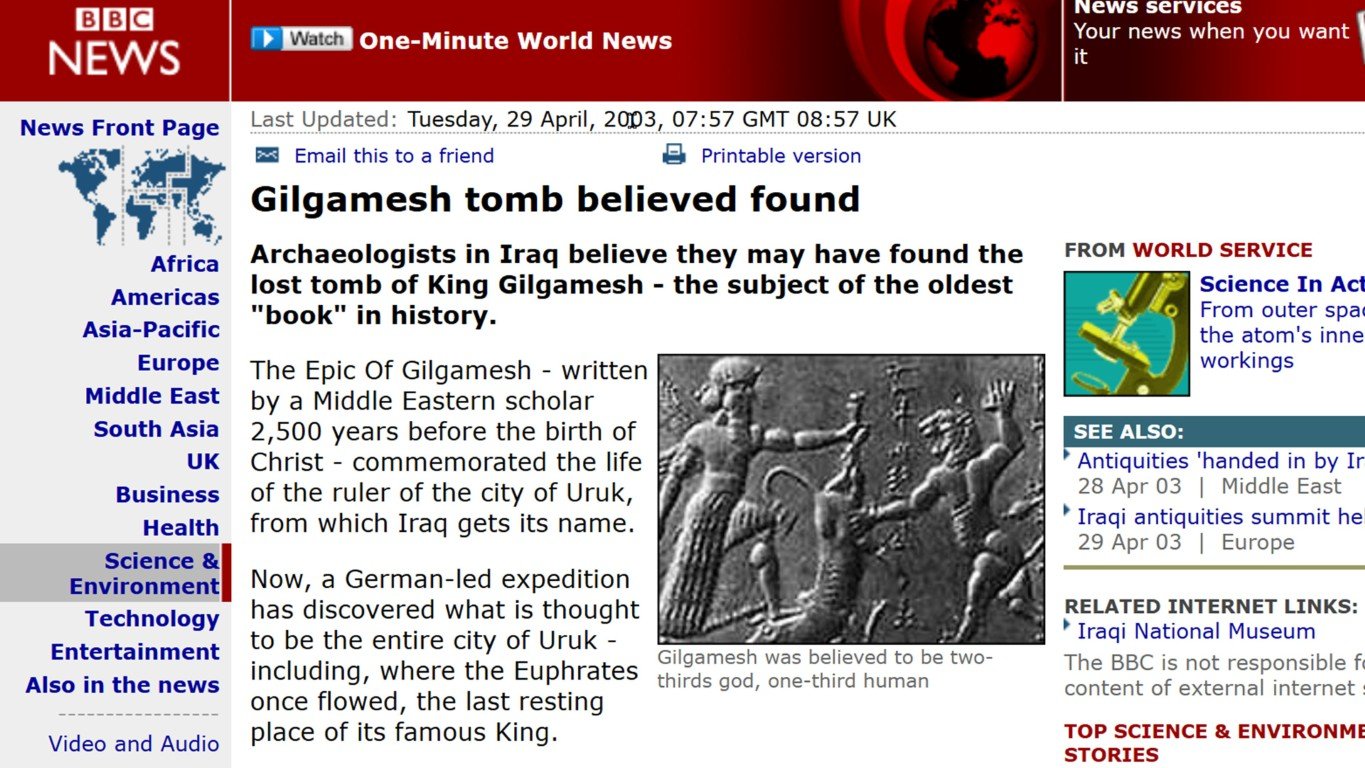
Wikipedia: Enkidu
There have been suggestions that he may be the “bull-man” shown in Mesopotamian art, having the head, arms, and body of a man, and the horns, ears, tail and legs of a bull. [7]
Enkidu is created as a rival to king Gilgamesh, but they become friends and together slay the monster Humbaba and the Bull of Heaven (sent by Inanna);Wikipedia: Inanna (Isis, Ishtar)
Inanna[a] is the ancient Mesopotamian goddess of love, war, and fertility. She is also associated with sensuality, procreation, divine law, and political power. Originally worshipped in Sumer, she was known by the Akkadian Empire, Babylonians, and Assyrians as Ishtar [b] (and occasionally the logogram 𒌋𒁯). Her primary title is “the Queen of Heaven“.Wikipedia: Queen of Heaven
Queen of Heaven (Latin: Regina Caeli) is one of many queen titles used for Mary, mother of Jesus. The title derived in part from the ancient Catholic teaching that Mary, at the end of her earthly life, was bodily and spiritually assumed into heaven and that she is there honored as queen.Wikipedia: Inanna (Isis, Ishtar)
The cult of Inanna/Ishtar, which may have been associated with a variety of sexual rites, was continued by the East Semitic-speaking peoples (Akkadians, Assyrians and Babylonians) who succeeded and absorbed the Sumerians in the region.(Spread and morphed under other names.)
Wikipedia: Inanna (Isis, Ishtar)
Inanna/Ishtar is alluded to in the Hebrew Bible, and she greatly influenced the Ugaritic goddess Ashtart and later the Phoenician goddess Astarte, who in turn possibly influenced the development of the Greek goddess Aphrodite….(Spreading and morphing.)
Wikipedia: Inanna (Isis, Ishtar)
In the standard Akkadian version of the Epic of Gilgamesh, Ishtar asks Gilgamesh to become her consort.
Two different versions of the story of Inanna/Ishtar’s descent into the underworld have survived…Wikipedia: Isis
Isis was first mentioned in the Old Kingdom (c. 2686 – c. 2181 BCE) as one of the main characters of the Osiris myth, in which she resurrects her slain brother and husband, the divine king Osiris, and produces and protects his heir, Horus.(Madonna and child.)
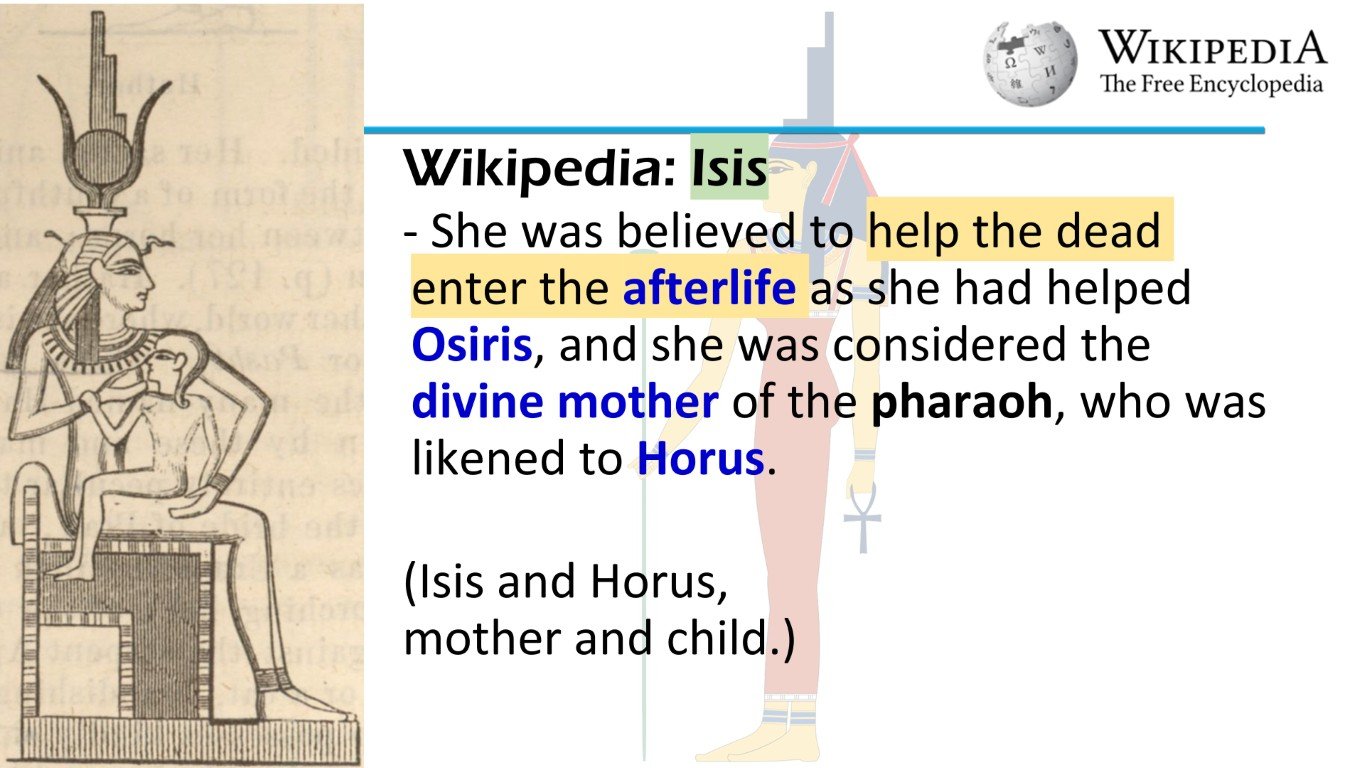
Wikipedia: Isis
Her reputed magical power was greater than that of all other gods, and she was said to govern the natural world and wield power over fate itself.Wikipedia: Isis
A contentious question about Isis is whether her cult influenced Christianity. [259] Some Isiac customs may have been among the pagan religious practices that were incorporated into Christian traditions as the Roman Empire was Christianized.Wikipedia: Isis
Similarities between Isis and Mary, the mother of Jesus, have also been scrutinized. They have been subject to controversy between Protestant Christians and the Catholic Church, as many Protestants have argued that Catholic veneration of Mary is a remnant of paganism. [266] The classicist R. E. Witt saw Isis as the “great forerunner” of Mary.

Rav Ariel Bar Tzadok: Extraterrestrials, etc.
21:00 – 21:18
Kabbalah comes from Greek Neo-Platonic philosophy.Wikipedia: Neoplatonism
Neoplatonism is a version of Platonic philosophy that emerged in the 3rd century AD against the background of Hellenistic philosophy and religion… Among the common ideas it maintains is monism, the doctrine that all of reality can be derived from a single principle, “the One“.B’reisheet (Genesis) 11:27-29
27 This is the genealogy of Terah: Terah begot Avram, Nahor, and Haran. Haran begot Lot.
28 And Haran died before his father Terah in his native land, in Ur of the Chaldeans.
29 Then Avram and Nahor took wives: the name of Avram’s wife was Sarai, and the name of Nahor’s wife, Milcah, the daughter of Haran…B’reisheet (Genesis) 11:30-32
30 But Sarai was barren; she had no child.
31 And Terah took his son Avram and his grandson Lot, the son of Haran, and his daughter-in-law Sarai, his son Avram’s wife, and they went out with them from Ur of the Chaldeans to go to the land of Canaan; and they came to Haran and dwelt there.
32 …and Terah died in Haran.Yochanan (John) 1:12-13
12 But as many as received Him, to them He gave the right to become children of Elohim, to those who believe in His name:
13 who were born, not of blood, nor of the will of the flesh, nor of the will of man, but of Elohim.
Shalom
Support the Great Commission on PayPal
Support the Great Commission on Patreon
We thank Yahweh Elohim for your love for His kingdom.

